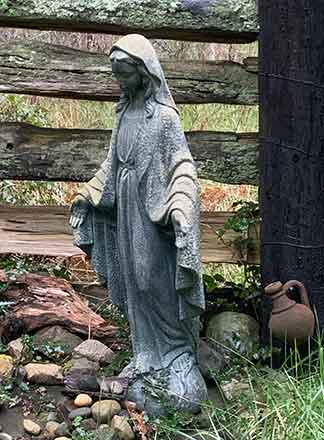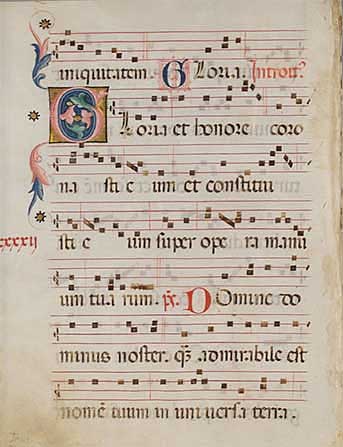
The motto of the Benedictines is Ora et Labora (Pray and Work). The celebration of Mass and the Liturgy of the Hours center our lives as a contemplative community in the heart of the Church, dedicated to praying for those both near and far.
OUR LITURGY SCHEDULE
LAUDS
Daily 6:30 am
MASS
Sunday: 8:00 am
Monday–Saturday:
Terce and Mass 7:50 am
VESPERS
Sunday: 4:30 pm followed by Benediction
Monday–Saturday:
5:00 pm
You are most welcome to join us in our Monastic Chapel for the celebration of Mass and Hours of the Divine Office. Our chapel is open throughout the day for private prayer and meditation.
The Divine Office“Let us then consider how we ought to behave ourselves in the presence of God and his angels, and so sing the psalms that mind and voice may be in harmony. ”
—Chapter 19, The Manner of Saying The Divine Office,
Holy Rule of St. Benedict
We sing the psalms seven times a day and once in the night, according to the order laid out by our founder Saint Benedict in his Holy Rule over 1500 years ago. Saint Benedict dedicates ten chapters of the Rule to giving very specific instructions as to what psalms, antiphons, and responsories are to be said at each Office and in each season.
 Depending upon the size and circumstances of a community the psalms of the Divine Office are recited and/or sung. These ancient prayers to God never lose their relevance, as so beautifully expressed by Pope Emeritus Benedict XVI in The Spirit of the Liturgy:
Depending upon the size and circumstances of a community the psalms of the Divine Office are recited and/or sung. These ancient prayers to God never lose their relevance, as so beautifully expressed by Pope Emeritus Benedict XVI in The Spirit of the Liturgy:
Gregorian Chant
“When man comes into contact with God, mere speech is not enough.”
—Pope Emeritus Benedict XVI, In The Spirit of the Liturgy
The community sings the Divine Office and Daily Mass in traditional Gregorian Chant. We follow the Solesmes Method which has been a living tradition handed down to us through the foundress of Regina Laudis, Lady Abbess Benedict, and Abbess Emerita David Serna, our 2nd Abbess, who directed our Choir and conducted our Chant CD’s. We have been privileged to be taught by great masters such as Dom Joseph Gajard from Solesmes, Dr. Theodore Marier, founder of St. Paul’s Choir School in Cambridge Massachusetts and Scot Turkington. Many of the nuns have learned and taught the Ward Method, founded by Mrs. Justine Ward in response to the reform of sacred music begun by Pope Pius X. Others have participated in Chant Symposia sponsored by the Church Music Association of America. Our guests, Oblates, and monastic interns are invited to study Gregorian Chant and to participate in the chanting of the Divine Office.

“Gregorian Chant has always been regarded as the supreme model for sacred music, so that it is fully legitimate to lay down the following rule: the more closely a composition for church approaches in its movement, inspiration and savor the Gregorian form, the more sacred and liturgical it becomes; and the more out of harmony it is with that supreme model, the less worthy it is of the temple. ”
—Motu Proprio on Sacred Music promulgated by Pope Pius X, November 22, 1903I
Read more about Gregorian Chant at the Abbey of Regina Laudis.
